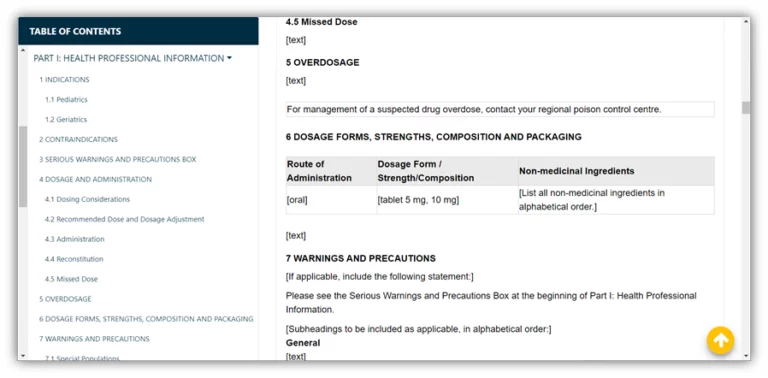New technologies and the generational change have led to a blur between the expectations of B2C and B2B customers. This presents new challenges for many companies that have come to terms with the fact that B2B customers think differently to B2C customers.
It suddenly seems as if the differentiation between B2C and B2B customers is no longer quite as black and white as it appeared to be a few years ago. So, who are your B2B customers today?
B2B vs B2C Customers
While the abbreviation B2C (business-to-consumer) describes the relationship between companies and consumers, the term B2B (business-to-business) stands for the relationship between two or more companies. Consequently, B2C companies sell directly to the consumer. While B2B companies sell to other companies. Right?
No, because B2B and B2C are basically about the same thing — selling goods to people. The only difference is that B2C customers make purchasing decisions as private individuals. Whereas B2B customers (mostly) do not act out of private interests; they act on their company’s behalf, catering to the company
The Truth About B2B Customers
That’s the theory behind how B2B customers act, but the reality looks different. The truth is that the difference between B2B customers and B2C customers is not quite as black and white as it may appear at first glance. To illustrate this, here’s a simple exercise:
Imagine a normal working day. What things do you pay attention to in your day-to-day work?
- Do you listen to the radio on your way to work?
- Do you read a newspaper and/or magazine while commuting to the office in the morning? Or do you read your favorite blog on the internet?
- Do you check your social media at work?
- Do you look at your mobile phone from time to time because there is a new notification?
- Do you reply to a personal email while working? Or a text message?
- Or would you like to order something quickly on Amazon during your lunch break?
You might get the idea of what I’m getting at. The abundance of different channels and technologies makes it harder than ever to separate your private life from your professional one.
Whether newspapers, radio, blogs, social media, emails or private messaging — we use several channels every day, even during work. We pay attention to the information that interests us whether privately as B2C or professionally as a B2B customer. Information that controls our trade, influences us subconsciously or even consciously, and ultimately shapes our purchasing decisions. B2B and B2C customers are, in the end, one and the same person.
Let Me Introduce You to — Your B2B Customer!
Today, millennials make up the vast majority of B2B customers. Millennials, also known as Generation Y or people born between 1980 and 1995, account for 73% of all B2B purchasing decisions.
Your New B2B Customers: Millennials
Generation Y is the first generation to grow up with the internet and mobile phones, making this generation much more technology-oriented than its predecessors. This means:
- Product and service research is done online
- Videos are the new white papers
- They prefer teams over hierarchies
- Being happy/satisfied at work has replaced prestige and status
It’s a generation that brings about change because millennials embody a change in values. The B2B world isn’t excluded from this generational change.
How Do B2B Customers Make Buying Decisions Today?
Today, millennials’ purchasing decisions depend on more factors than just a good price/performance ratio.
Factors that increasingly influence the purchase decision include convenience and the speed of the purchasing process. A 2019 survey of more than 500 B2B customers showed that suppliers can meet this need for convenience and speed through an online platform. The top criteria which B2B customers use to choose a new supplier are: the ability to track orders online (39%), place orders via an online sales portal (38%), and manage returns online (34%).
...And Their Expectations
Millennials only want to talk to a sales representative after they have thoroughly researched the solution. This means that in most cases the first contact they have with a company and its products is online. In fact, during the purchasing process, almost 50% of all B2B buyers use the internet to search for information, solutions, and suppliers.
What if your company doesn’t list all your products online, or — worse — you have no online presence at all?
Then it’s very simple: Your products won’t be included in the majority of customers’ purchase decision phase. That’s because 62% of B2B buyers now prefer to access information online, compared to only 27% who prefer to search for information offline.
The expectations of the new generation of B2B customers don’t stop there. Many want their suppliers to improve the performance of their online store to offer: more information, easier and faster checkout, easy repeat ordering, quicker delivery, and improved tracking.
The results of the 2019 research into B2B buyers’ buying behavior clearly shows that e-commerce and online sales channels play an important role in B2B customers’ buying process.
Customer Portal: Your Company’s First Point of Contact With Your B2B Customers
Because your web store is often the first point of contact you have with your B2B customers, it’s important to identify what products and services you offer online. You should optimize the descriptions and keywords of these products and services so that they can be found via search engines.
24/7 Access to Information
An integrated customer portal can make all the product information that’s stored in your ERP available around the clock. This allows your potential B2B customers to access your product range 24/7 and use this information to make their purchasing decisions. It also enables you to make all other information, such as delivery times and inventory levels, accessible online.
Relief for Your Sales Team
B2B e-commerce not only has advantages for your potential B2B customers but can also relieve your sales department from their heavy workload. Thanks to the digital customer portal, tasks such as customer administration, order creation or quotation negotiations are mostly automated. Giving your sales department more freedom to focus on advising strategic customers with high sales potential and complex requirements.
Learn more about B2B sales and why your customers want to buy online.
The Most Important Requirements for Digital Customer Portals
The new technologies and the generational change have led to the line between B2C and B2B customers becoming increasingly blurred. B2C and B2B customers have the same expectations and demands from companies from which they purchase products and services.
To remain competitive, it is therefore important that companies meet this challenge. For this reason, we’ve summarized the most important requirements for digital customer portals for you:
Usability: B2B customers expect their B2B online experiences to be on par with B2C web experiences.
Self-service: An absolute must-have is to provide your customers with insight into product specifications (the more complicated the product, the more important it is to have detailed descriptions), delivery times, inventory levels, invoices, order confirmations, price lists, etc.
24/7 support: Just like in B2C, B2B customers want to have 24/7 access to all product and service information and to be able to place orders around the clock.
Mobility: From customer data to orders and delivery dates, B2B customers want to have access to all processes on the go. That’s why you must make sure that all information can be accessed on the move.
Here’s How You Can Offer Your 21st-Century Customers Excellent Service
Now that you know who your 21st-century B2B customer is, discover all the necessary information and tips on how to provide that customer with an excellent customer experience. Download this whitepaper for free: how you can offer an excellent customer experience in the digital age.


